#the way their respective franchises have done them outside of the original material is crazy
Explore tagged Tumblr posts
Text
Opinion: DC and Marvel’s Multiverses Are Crucial To The Future of Superhero Film
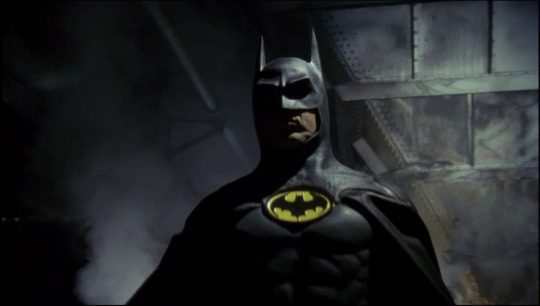
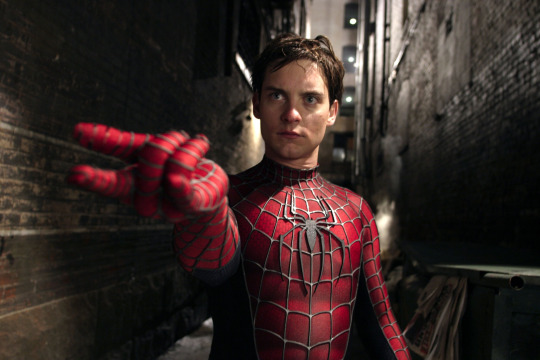
Alright, buckle up kids, this is going to be a long one. Get some soda and some popcorn, or some green tea and avocado toast.
Back in the long-distant year of 1989, a little film called Batman released into theaters and became the film of the Summer. Directed by Tim Burton and starring Michael Keaton and Jack Nicholson as Batman and the Joker respectively, it was a cinematic triumph that heralded a new wave of superhero films taking their source material seriously. Followed up in 1992 by Batman Returns, a sequel which increased the fantastic elements but was criticized for its darker tones, Batman’s role in movies was cemented in place by continued success. Of course, Keaton and Burton would leave to be replaced by Val Kilmer as Batman with Joel Schumacher directing for 1995′s Batman Forever, with George Clooney stepping into the cape and cowl for 1997′s Batman and Robin, a wild disaster of a film which nearly destroyed Batman’s chances in movies. But then, in 2005, Christopher Nolan brought a gritty realism to the caped crusader in Batman Begins, and continued this successful experiment with 2008′s Best Film Of The Year, The Dark Knight, and 2012′s The Dark Knight Rises (which was....fine). By this time the DCEU was beginning to get started, so a new Batman was cast for Zack Synder’s 2016 Batman v Superman: Dawn of Justice, and this role went to Ben Affleck. He reprised the role in David Ayer’s Suicide Squad and Joss Whedon’s Justice League, but bowed out of the opportunity to write and direct his own solo Bat-flick. So director Matt Reeves was tapped to direct a new Batman film starring a controversial choice of Robert Pattinson as Batman. With all of this, the question of the past 30-odd years is: which is your favorite Batman? Which one was the best? And how do these films fit into an increasingly convoluted canon in which a film series is rebooted every ten years or so?
What if the answer is: they’re all great and they all fit into canon?
Now, before we think too hard about that, let’s take a look at Spider-Man’s cinematic installments, which is almost more convoluted and in a more compressed amount of time. Beginning with 2002′s Spider-Man directed by Sam Raimi and starring Tobey Maguire, the amazing wall-crawler enjoyed a fantastic amount of success on the big screen, followed up by one of the best superhero films of all time, 2004′s Spider-Man 2. But Spider-Man 3 in 2007 took all of that goodwill and smashed it into the ground with a failure almost as bad as Batman and Robin a decade earlier. Plans for a Spider-Man 4 were scrapped, and eventually in 2012 director Mark Webb and star Andrew Garfield would bring a brand new Spidey to life with The Amazing Spider-Man, and The Amazing Spider-Man 2 in 2014. Both films were lively and energetic, but criticized for trying to stuff too much into their films -- especially the second one. Sony Pictures was attempting to ramp up a cinematic universe much like Marvel Films was doing at the time, but it was too much too fast. 2017 brought another reboot of the moviefilm version of Spidey, this time directed by Jon Watts and starring Tom Holland, with Spider-Man: Homecoming, this time under Marvel Film’s banner (thanks to backdoor dealing), and another cinematic triumph in 2019′s Spider-Man: Far From Home. But, unlike Batman, Spider-Man’s dealings behind the scenes are nearly as convoluted as his series. Sony Pictures owned the rights to make Spider-Man flicks for years, until Marvel managed to make a ludicrous offer after Amazing 2 failed to catch on the way producers hoped. So Spidey came to the MCU under a joint production, which is how we got Homecoming and Far From Home, but also maintained a different universe with the Amazing films, and then 2018′s Venom, and a little animated motion picture also in 2018 by the name of Spider-Man: Into The Spider-Verse.
Class, this is where I would like to direct your attention to the origin of the extraordinary events we are discussing today. Or is it the origin?
Into The Spider-Verse successfully proved that not only is the idea of multiple universes all connecting on screen a good idea, it’s an Oscar winning idea. Spider-Verse is hands down the best animated superhero film ever, and one of the best superhero films period. But here we must take note of certain ideas. The film provided much setup for a world where young Miles Morales begins to emerge with spider powers, but then Spider-Man is killed right in front of him before he can learn how to use them. Enter a Spider-Man from a slightly different parallel dimension, who not only turns Miles around, but find himself inspired to realign his own life. Spider-people abound through the film, all of them having equal weight and the possibility of spawning their own franchise without having to worry about impacting the canon of other universes. This is something comic books have done for literal decades, but Spider-Verse did it with such care and devotion that it won Best Animated Picture and became a mainstream smash hit. Marvel and Sony both sit up at attention; could this work with the major mainstream films they’ve been producing? So the experiment begins: we have a teaser trailer for Morbius, based on a vampiric Spider-Man villain, which features a cameo from the Vulture character first seen in Homecoming. And after dropping hints that Tom Holland’s Spider-Man could cross over with Tom Hardy’s Venom, Jamie Foxx recently posted about being cast as Electro -- a role he played in Amazing Spider-Man 2 -- for the third Tom Holland Spidey flick. Pictures went up on his Instragram seeming to confirm that not only was this the same Electro, but that all three previous Spider-Men -- Maguire, Garfield, and Holland -- would team up for the film. Multiple universes collide, a live action Spider-Verse, where everyone is crossing over with each other. Now, this lines up perfectly with Marvel’s MCU plans, as Doctor Strange has established in his film that multiple universes exist, and his announced sequel is even titled Doctor Strange in the Multiverse of Madness. It’s here. It’s happening. Every Spider-Man film is canon, they’ve all happened, and we don’t need to worry about which of them make sense or belong. They all make sense.
But just before this announcement, a month or so ago DC let slip that their plans for an upcoming Flash movie are taking cues from the Flashpoint comic books, in which Barry Allen goes back in time and accidentally creates a brand new timeline that he has to correct. Michael Keaton has even been cast as Bruce Wayne, the same Bruce Wayne that he played 30-odd years ago, a casting choice many fans have been clamoring for for years. On top of that, once word was put out that Keaton’s role would be similar to Samuel L. Jackson’s role as Nick Fury in the MCU, Ben Affleck was reported to be joining the picture as Batman also, a team-up no one saw coming. Even Christian Bale is being courted to join the universe-spanning flick, but reportedly only if director Christopher Nolan gives his blessing. Multiple Batmen teaming up together in a Flash movie to combat crime? Of course I’ve already bought tickets. Batman is the biggest box-office draw outside of The Avengers. And this concept opens up plenty of opportunities for DC, who’ve done Elseworlds stories in the comic for years. Joker with Joaquin Phoenix proved that DC films not directly tied to the DCEU can and will do well on their own; The Batman with Pattinson will no doubt further confirm that. But now Batman Returns is once again a viable film mixed into a comic book cocktail of wonder and excitement? And what’s wonderful is that this isn’t DC’s first big attempt at this. Slowly and surely, The CW’s Arrowverse TV shows -- Arrow, The Flash, Supergirl, Legends of Tomorrow -- have been doing multiverse crossovers for years, building up to 2019′s mega-event Crisis on Infinite Earths, which saw Brandon Routh reprise his role as Superman from 2006′s Superman Returns, which itself is a sequel to Christopher Reeve’s Superman and Superman II. And for one wonderful scene, TV’s Flash, Grant Gustin, got to interact with the DCEU’s Flash, Ezra Miller, confirming that these TV and film universes are indeed one big cocktail of parallel lives and dimensions that all interconnect while still being separate. Hell, we even saw Burt Ward, Robin from the 1966 Batman show, alive and well an in his own little world. Batman ‘66 is part of the wider DC Multiverse! How crazy is that? And we even got a small tease that Batman ‘89 is part of all of this as well, when we got to see reporter Alexander Knox look up to the Batsignal in the sky as Danny Elfman’s iconic score played. In one fell swoop, in as few as a casual couple of cameos, DC made all of their live-action properties canon in the multiverse, meaning no matter which version you like the best, they all work together and work from a franchising and audience standpoint. The 1978 Superman and the 1989 Batman both existed in worlds that ran sidecar to 2019′s Joker and 2011′s Green Lantern. It’s wild, unprecedented in cinematic history, and wonderful for fans of all ages.
Why is this the future of superhero flicks, though? It ought to be simple: no matter what movies come out, no matter how wild or crazy or outside “canon” they seem to be, they all can work and they all can coexist without having to confuse fans. Many people were feeling the reboot fatigue as early as 2012′s Amazing Spider-Man, and while there was a huge tone shift between Batman Returns and Batman Forever, the Bat-films were considered all part of the same line until Batman Begins started all the way over. Now we have Batman 89 and Returns in one world, Forever and Batman and Robin in another (which was already a fan theory, mind you). Sequels that don’t line up with their predecessors can just be shunted into a hidden multiverse timeline and left alone without the convoluted explanation of having to “ignore” certain sequels. Superman III & IV were ignored when Superman Returns chose to connect only to the first and second films, but now we can say that they definitely happened....just somewhere else. There is now a freedom of ideas and creation that can once again occur when making big-budget films based on superheroes. No longer do creative minds need to be restrained to the canon and timeline and overarching plots defined by studios years in advance; “creative differences” don’t need to drive frustrated directors away from characters or stories they truly love. Possibly -- just possibly -- good ideas can become the gold standard once again for comic book films, not just ten-year plans for how to get Captain America from scrawny Marine to Mjolnir-wielding badass. Remember when filmmakers decided to make Joker the same person who killed Bruce Wayne’s parents? Or when they decided to give Spider-Man the ability to shoot webs from his body instead of technology? That certainly wouldn’t fly these days; studio mandates would require adherence to previously established guidelines, or at least what has been seen in the comic. What if now we could get a three-episode limited series on HBO Max of Gotham By Gaslight? Or a big-budget adaptation of Marvel’s 1602? Simply trying to wedge old comic book storylines into existing Cinematic Universes no longer need be a thing! We could get some of the wildest interpretations of superheroes this side of Superman: Red Son. At least, that’s the hope, anyway.
When comic books can step away from canon for just a few minutes, worlds open up and expand. An entire multiverse of ideas can become a feast of entertainment for many. And when there’s already so many beautiful, well-told stories set in alternate universes as comic book precedent, so too can there be beautiful, well-told stories set in alternate universes for film. And the best part? Now they all matter. And I think that’s the future.
#batman#spider-man#the flash#into the spider-verse#flashpoint#dceu#mcu#dc comics#marvel comics#elseworlds#what if#superhero movies#michael keaton#tobey maguire#ben affleck#andrew garfield#robert pattinson#tom holland#christian bale#opinion#ck burch#rubyranger#ranger report
13 notes
·
View notes
Text
My Hope for a Live-action Dragon Ball Franchise
10 years ago, on the 10th of April, the Dragon Ball fandom was cursed with the abomination of Dragonball: Evolution.
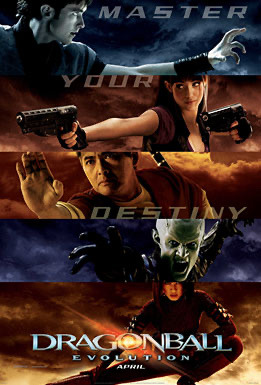
Yeah, I hate to bring back painful memories too. Aside from just being a god awful movie, it’s a god awful adaptation of one of the most influential Shonen manga of all time. Nothing from the original series carried over into this thing aside from the Dragon Balls, and even then they fucked it up!
But........ we have had great success with Dragon Ball since then, including 2 fantastic movies, another sequel anime in the form of Dragon Ball Super and arguably their best move, Dragon Ball Super: Broly!
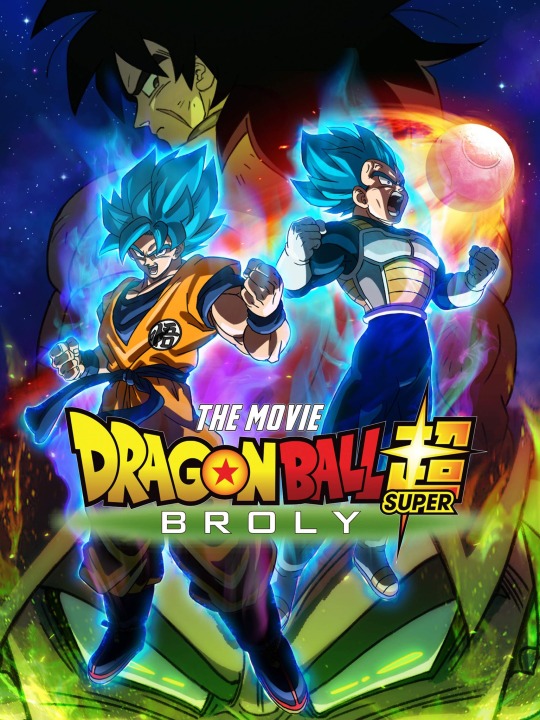
(Seriously if you haven’t seen this movie yet, do it!)
But now that 10 years have passed and with anime becoming more mainstream than ever, I think it’s time that we gave Dragon Ball in live action another try.
Now I know what you’re all thinking:
“There is absolutely no way in hell a live action Dragon Ball movie can work.”
Honestly, I don’t blame you guys for thinking like that. DBE has really tainted, not only Dragon Ball, but live action adaptations for anime in general. Every time a new one is made, everyone refers back to DBE as the leading example of how it can, and does fail. Not only that, but many people think that doing a live action Dragon Ball would be impossible, given how crazy the series is.
I disagree with that notion. While it wouldn’t be an easy feat to accomplish, I don’t think it’s truly impossible. I believe a live action Dragon Ball movie CAN be made, if they do some of the following:
1. Get a director with proven talent who can also capture the spirit of the source material
This one is essential as hell and I have some directors in mind who would be very good choices for a project like this.
1. James Gunn
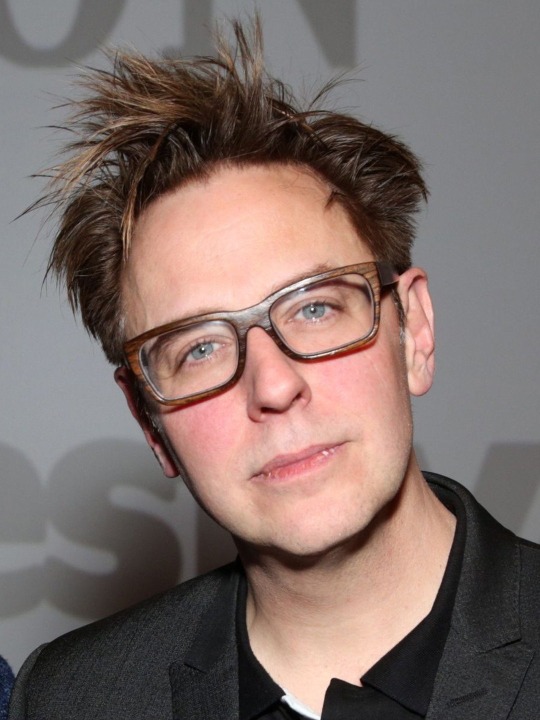
James Gunn did the impossible when he directed Guardians of the Galaxy. Not many people outside the comics community has even heard of the team and they went from Z-list characters to top tier characters and one of Marvel’s most popular teams. Not only that, but he also has a knack for striking a perfect balance between serious and comedic, which is perfect for Dragon Ball. Speaking of comedy, his strange sense of humour is very similar to Toriyama’s, along with capturing the weird and wacky world of aliens, space magic and epic battles. James Gunn would be my top choice for a live action Dragon Ball film.
2. Taika Waititi
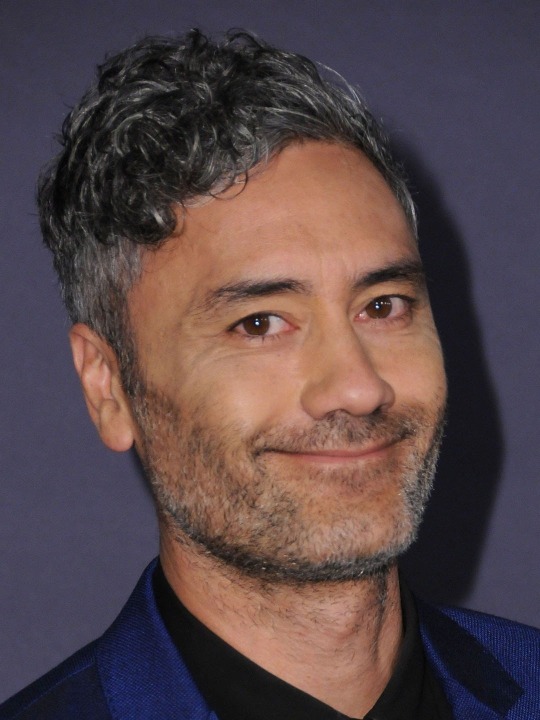
Thor: Raganarok was a huge hit, not just for the MCU as a whole, but for the Thor series. It gave the character and his world new life and it’s honestly the closest thing I’ve seen to a live Dragon Ball Z. Every staple of DBZ exists in this movie; strange worlds, epic fights, crude and absurd humour, crazy-ass powers and transformations. Seriously, it’s like Taikia Waititi was tailor made to direct Dragon Ball.
3. David F. Sandberg
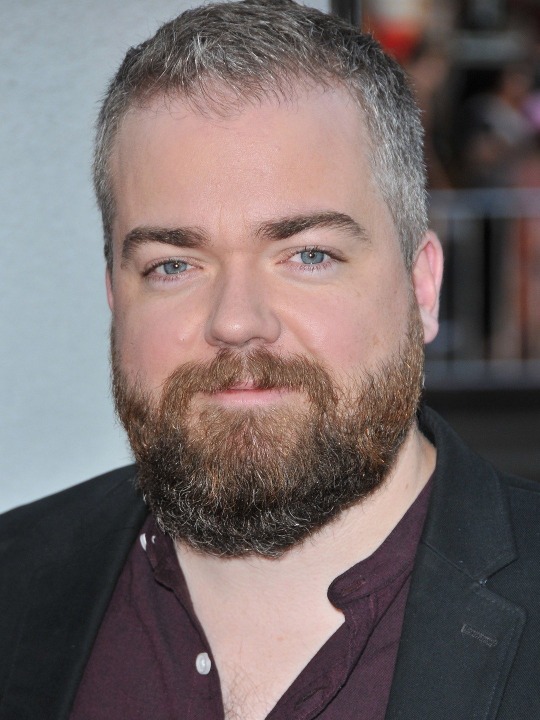
David F Sandberg’s work on Shazam was nothing short of fantastic! A seriously heartfelt movie, it managed to portray the character seamlessly from the comics and is one of my favourite comic book movies of all time. With some funny moments and some really dark, twisted scenes, I’m sure David can bring something truly amazing to the table if he was in charge of directing Dragon Ball.
2. Do NOT adapt Dragon Ball Z first.

Dragon Ball Z may be one the most popular and iconic anime of all time, but it was the second part of an overall larger story. The first part started with Dragon Ball.
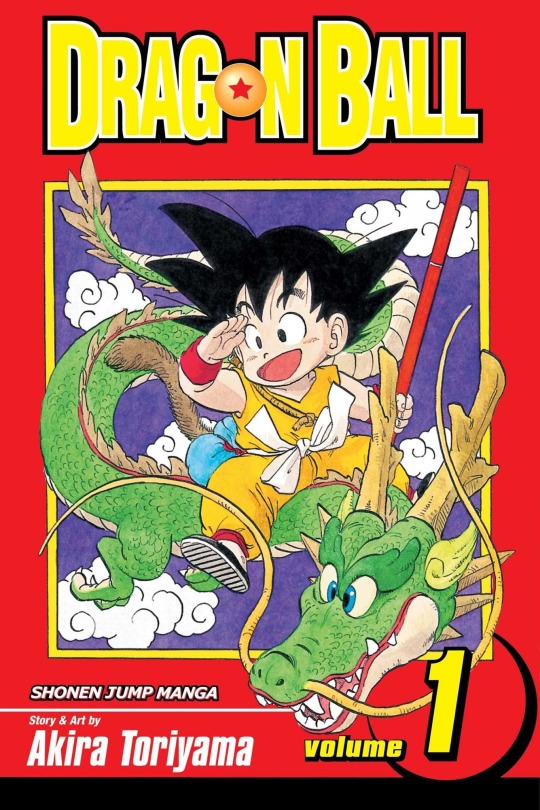
This is the series true beginning and to skip out on it would be a huge disservice. Everything that makes the franchise so beloved was built off of this and it deserves to be represented more. As for the storyline they should start with? Well they could either start with Emperor Pilaf arc or the Red Ribbon arc. I know this may might sound hypocritical given that DBE was not at all faithful to the source material, but there are some liberties that do need to be taken here. That’s just the nature of adaptations. All that said, though, if most of the source material is adapted well in the film, I wouldn’t mind a few liberties taken here and there, provided they’re done RIGHT and with RESPECT!
3. Get a good mix of unknown actors and actors with proven talent
For something like Dragon Ball, I believe the route of unknown actors is the right way to go and when it comes to casting the characters, I’d recommend that primarily Asian actors are used. The world of Dragon Ball is very diverse, filled to the brim with different kinds of species and creatures, but it also has heavy roots in Asian Mythology. For me, here’s how I would see the casting pan out:
Saiyans- Primarily Asian actors.
Humans- Mix of different actors. Characters like Roshi, Tien, Yamcha, Krillin and ChiChi would need to be Asian, while Bulma, 17 and 18 can be cast as anyone.
Aliens and other strange species- Mix of different actors. You can get anyone for these roles.
4. Get the right studio
With a project like Dragon Ball, you would expect a lot of money to be involved here. For me, I have the perfect studio in mind for this:

Before anyone yells at me, let me make it clear that I understand everyone’s grievances with Disney, especially recently.
Regardless, they have had successful hits at he box office and have made some of the best film franchises of the modern day. Their success with the MCU is pretty much why I chose them in the first place. They accomplished a very difficult task of an overarching story spanning 23 movies and revitalising comic book movies. If they can replicate that with Dragon Ball, I think we’d have, not just a good live action Dragon Ball movie, but a truly great film franchise!
Though that’s just wishful thinking. 😅
Thus concludes my reasons for wanting another live action Dragon Ball film. What do you guys think? Do you agree or disagree? Do you think it’s impossible and I’m just wishing or do you think it can happen? What are your ideas for a live action Dragon Ball and which studio do you think should take it if Disney isn’t the right choice? Let me know by commenting and reblogging.
Have a good night guys! ✌️
#dragon ball#db#dragon ball z#dbz#dragon ball super#dbs#live action dragon ball#dragon ball evolution#james gunn#taika waititi#david f. sandberg#walt disney#walt disney pictures#hypothetical live action dragon ball#dragon ball manga#source: gstatic#source: wikipedia#source: dragon ball wiki
15 notes
·
View notes